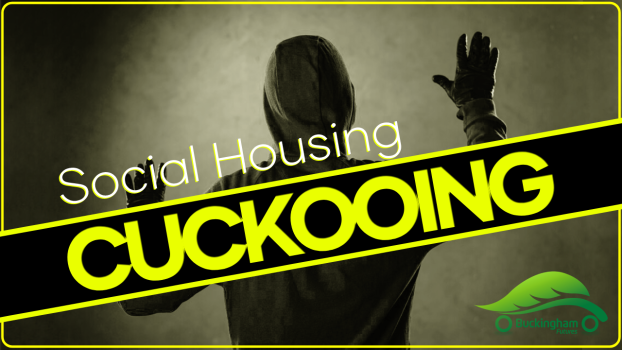
The Impact of Cuckooing on Social Housing

The impact of cuckooing on social housing in the UK has become a growing concern in recent years. Cuckooing refers to criminals taking over the homes of vulnerable individuals to use them as a base for illegal activities such as drug dealing or human trafficking. Not only does it put vulnerable individuals at risk, but it also has wider implications for communities and the housing sector as a whole.
Today, we will explore the impact of cuckooing on housing in the UK, including facts and figures, and ways to address the issues.
Impact of Cuckooing on Social Housing
Cuckooing has serious consequences for individuals whose homes are taken over. Some of the impacts include:
- Displacement of Vulnerable Individuals: The displacement of vulnerable individuals can leave them homeless or forced to live in unsafe conditions. Vulnerable individuals includes the elderly or those with physical or mental health issues.
- Property Damage: Criminals who cuckoo properties often engage in illegal activities such as drug production, dealing and in some cases human trafficking. These issues can cause significant damage to the properties, resulting in costly repairs for landlords, housing providers and th housing sector.
- Community Safety Concerns: Cuckooing can impact community safety, as criminal activities often take place in residential areas. The quality of life for local residents will be affected due to increased crime rates, fear and insecurity in communities.
Facts and Figures
In the UK, Cuckooing is difficult to measure accurately due to its clandestine nature. Facts and figures from recent reports conducted into cuckooing will shed light on the issue:
- Vulnerable Individuals at Risk: According to a report by the National Crime Agency, vulnerable individuals with substance abuse problems or physical disabilities are particularly at risk of being targeted for cuckooing.
- Increasing Trend: A study by the University of York found that the practice of cuckooing has been increasing in recent years, particularly in areas with high levels of drug-related crime.
- Geographic Variation: Cuckooing is reported to be more prevalent in certain areas of the UK, particularly in urban areas with higher levels of deprivation and crime. For example, a study by The Guardian found that cuckooing was particularly common in cities such as London, Manchester, and Birmingham.
- Link to County Lines: Cuckooing has been linked to the phenomenon of county lines, which involves drug gangs from urban areas exploiting vulnerable individuals and using their homes in rural areas to expand their drug operations. According to a report by the National Crime Agency, around 90% of county lines involve cuckooing.
- Legal Action: In recent years, landlords and housing providers have been prosecuted for knowingly or unknowingly allowing their properties to be used for illegal activities.
Addressing the Issue
Addressing the issue of cuckooing requires a multi-faceted approach involving various stakeholders, including housing providers, law enforcement agencies, local authorities, and support services for vulnerable individuals.
- Safeguarding and Support for Vulnerable Individuals: Providing support and safeguarding measures for vulnerable individuals, such as those with mental health issues, substance abuse problems, or physical disabilities, is crucial in addressing cuckooing. This may involve regular welfare checks, access to mental health or addiction services, and providing safe housing options for those who are at risk of being exploited.
- Collaboration and Information Sharing: Enhancing collaboration and information sharing between housing providers, law enforcement agencies, and local authorities can help identify and respond to cases of cuckooing more effectively. This may involve sharing intelligence, implementing joint protocols, and developing effective communication channels to report suspicious activities.
- Training and Awareness: Providing training and raising awareness among housing providers, landlords, and community members about the signs of cuckooing and the appropriate actions to take can help prevent its occurrence. This may include identifying red flags such as sudden changes in behaviour or unexplained visitors and providing guidance on reporting suspected cases to the authorities.
- Legal and Enforcement Measures: Strengthening legal and enforcement measures can act as a deterrent against cuckooing. This may involve prosecuting individuals involved in cuckooing, imposing penalties on landlords who knowingly or unknowingly allow their properties to be used for illegal activities, and confiscating assets gained through criminal activities.
- Access to Affordable and Safe Housing: Ensuring access to affordable and safe housing options for vulnerable individuals can reduce their vulnerability to cuckooing. This may involve increasing the availability of social housing, providing support for individuals at risk of homelessness, and ensuring that housing providers follow appropriate screening and tenant selection processes.
- Community Engagement: Engaging with local communities can help raise awareness about cuckooing and promote community safety. This may involve setting up neighbourhood watch programs, organising community events to foster a sense of belonging and vigilance, and promoting positive relationships between residents and housing providers.
Final Thoughts
Cuckooing poses a serious threat to vulnerable individuals and has wider implications for the housing sector and communities in the UK. Understanding the impact of cuckooing on housing and implementing appropriate strategies to address the issue is crucial.
This may involve safeguarding and supporting vulnerable individuals, enhancing collaboration and information sharing, providing training and awareness, strengthening legal and enforcement measures, ensuring access to affordable and safe housing, and engaging with local communities. By taking a multi-faceted approach, we can work towards preventing and addressing cuckooing, protecting vulnerable individuals, and promoting safe and thriving communities.
Authors

Jacques Shepherd ~ Senior Recruitment Consultant (Residential Division Lead)

Husna Stanakzai ~ Marketing Specialist Assistant
Buckingham Futures HQ
We are dedicated to providing our exceptional recruitment and consultancy services to you. With our team of specialist recruitment consultants, they will be able to assist you in your queries and job hunt.
Give us a call on 020 8125 4321 or email your CV to info@buckinghamfutures.com and let’s have a chat!
“Recruiting the Present, Inspiring the Future.” ~ Buckingham Futures

Share
Facebook
Twitter
LinkedIn
Telegram
Tumblr
WhatsApp
VK
Mail